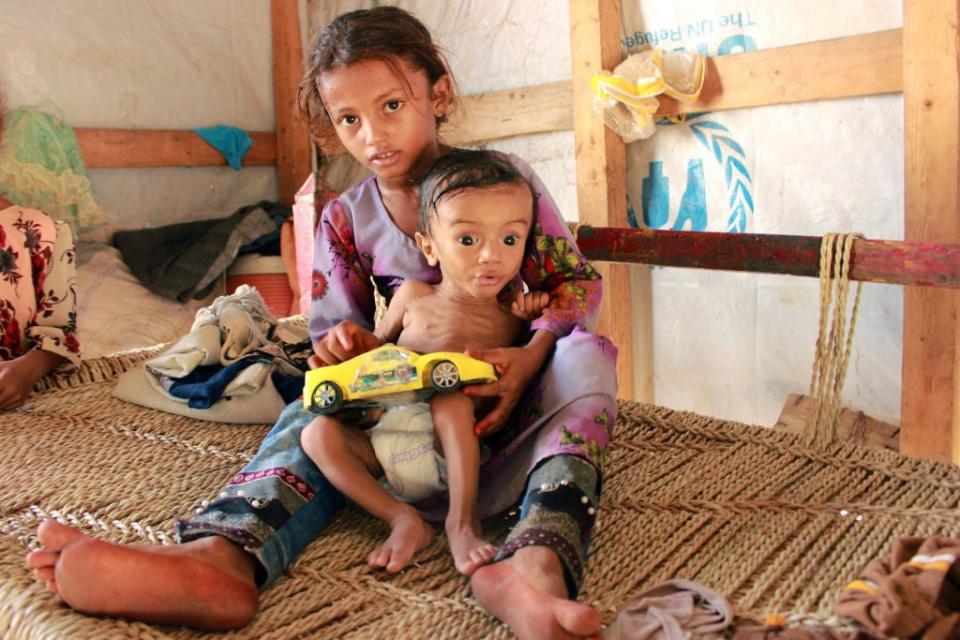Aid cuts will devastate lives – the government must commit to a budget reinstatement date now

Wednesday’s spending announcement was felt deeply and sorely in the heart of the international community. UK Aid and the 0.7 commitment has been a source of pride for the UK, a promise to the world’s poorest which also enabled the UK to stand tall.
A row back on this commitment and change in legislation, however temporary, is a signal to the world’s most vulnerable children that promises can be broken and that their lives don’t matter.
There is no doubt that the chancellor made this decision under immense pressure, at a time when the impact of the coronavirus pandemic is being felt just as deeply here in the UK as it is the world over. I appreciate that difficult decisions must be made and that it is of course right to examine the government’s spending portfolio while we respond to the health and economic emergency on our own doorstep.
Indeed, children in the UK are being disproportionately affected by this pandemic too and Unicef UK is working hard to ensure that children here receive the support they so desperately need at this time.
But it should never be a trade-off when it comes to children’s lives. Every child matters regardless of where they’re born.
I fear we have become too fixated on the financial cost of keeping our commitment to 0.7 spending (which would count for £4bn of the government’s projected £400bn debt) rather than looking with empathy and compassion at the devastating human cost of this reduction in aid at a time of global crisis.
While it’s too soon to tell exactly how the world and its children will be affected, aid experts and MPs have estimated that at least an additional 105,000 people could die, 5.6 million children a year will miss out on vaccines and almost 100,000 fewer children will be educated as a result of these cuts.
What we do know is that the coronavirus pandemic is the biggest and most urgent crisis affecting children globally since the Second World War. Millions of children all over the world rely on UK Aid to survive and have never needed aid more, with 6,000 more children already at risk of dying each day from the impact of coronavirus on vital health services, plunging already weakened health systems into disrepair and placing children in danger. And what hope is there for them now, if we row back on our commitments in their time of greatest need?
Even before the pandemic, we have seen time and again the amazing human impact of UK Aid through Unicef’s work. It helped to beat Ebola outbreaks, vaccinate more than half the world’s children, rehabilitate former child soldiers in places like South Sudan and provided crucial health and nutrition services for malnourished children in war-torn Yemen. I recently spoke to a Unicef health worker at Za’atari Camp in Jordan – home to 45,000 children who have fled the Syrian war. Despite the myriad challenges Covid has presented within the camp, thanks to funding received from UK Aid, every single one of these children is able to access clean, running water and immunisation against deadly diseases, administered by UK-aid funded health workers.
The UK’s commitment to 0.7 spending to date has not only shown our dedication and compassion to the world and its most vulnerable people, it has secured Britain’s standing and leadership on the global stage – which is crucial ahead of events like COP26 and the UK’s presidency of the G7 in 2021 as well as efforts to rebuild the world after such global instability and crisis this year.
Indeed, this week we heard the prime minister state that our commitment to COVAX and providing a low-cost vaccine for the world stood us in good stead to reduce aid with our heads held high. There is no question our commitment to vaccines is something we can be proud of. But funding COVAX and then cutting aid is like driving a car without wheels; how can we expect these vaccines to be rolled out without the UK Aid funded health workers who administer them?
Now is not the time to turn our back on the world’s children. The foreign and development secretary must urgently confirm that this cut will be for one exceptional year only and explain exactly when the 0.7 promise will be reinstated. He also needs to provide his personal assurance that these cuts will not be felt by the world’s most vulnerable children who rely on the UK’s lifesaving and life-changing aid budget every day.
The aid budget may be seen by many as just a percentage, but for many of the world’s poorest children it’s a lifeline upon which they depend. It’s a promise we can and must keep, for their sakes and for their futures.
Joanna Rea is director of advocacy at Unicef UK
To join Unicef UK in calling on the UK government to protect aid for children and mothers, visit unicef.org.uk/campaign-with-us
Read More
Why the overseas aid budget needs to be protected
PM’s new chief of staff heads charity which slammed cut to foreign aid
Could aid budget cut harm UK’s efforts to lead on climate crisis?
Aid cut will not be restored in ‘foreseeable future’, Raab admits

 Yahoo Finance
Yahoo Finance 